MICLE
A collaborative project between the University of Caen (France) and Goethe University, Frankfurt am Main (Germany).
The MICLE project aims to:
- create a corpus of texts of the same types for the Norman French and the Venetian language, from the origins to the seventeenth century
- explain syntactic changes in the sentence structure in two Romance language varieties for the period in question
- advance methodological practices and conceptual perspectives in the field by creating a model linking grammatical change to the acquisition of language.
Corpus:
In order to achieve MICLE’s main goal of elaborating and testing a multifactorial model of word order evolution, we are creating a bilingual corpus in two Romance language varieties with similar trajectories of development, the Venetian language and Norman French.
Our corpus aims, as far as possible, to give access to the everyday language from the earliest vernacular accounts to the seventeenth century. The texts of the corpus belong to the same non-literary textual types, which will allow us to avoid distortions and biases that the collection of a diverse range of genres would have introduced.
Since they contain evidence of spoken language and traces of dialogue, we have included trial accounts, depositions and so-called styles de procès for the French part of the corpus. For example, the French corpus showcases witch trials in Normandy and the Channel Islands, from Jeanne d’Arc to Madeleine Bavent.
Since April 2023, you can consult the first version of the French corpus, lemmatised and part-of-speech annotated, via the CRISCO lab’s TXM portal (select MICLE-PREVIEW from the left-hand side menu).
Considering the specificity and availability of extant witness accounts, the Venetian part of the corpus will include not only trial accounts but will include statutes and other legal texts that illuminate the system of government in different regions under Venetian control. The full annotated Venetian corpus will be made available at the end of the project. Wherever possible, annotated XML/TEI files of the corpus texts, as well as the software developed and used for the purposes of annotation will also be made available in spring 2024.

CobBauge
The CobBauge project has been selected as part of the European cross-border cooperation programme INTERREG V A France (Channel) / England co-financed by the ERDF. It will develop, test and establish a new generation of innovative low environmental impact cob materials using local soils and agricultural fibres or industrial by-products.

ITEG
The ITEG project has been selected as part of the INTERREG V B North-West Europe European Transnational Cooperation Programme co-financed by the European Regional Development Fund (ERDF). Its main objective is to reduce CO2 emissions from the energy sector in the ENO territory, by developing an all-in-one solution.
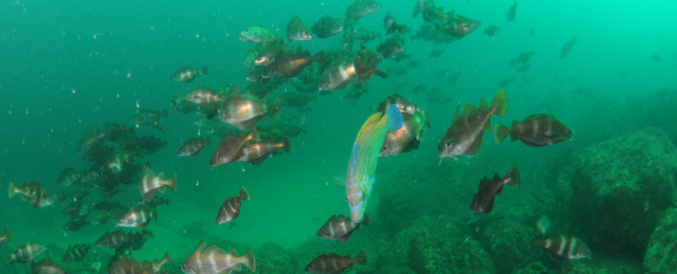
MARINEFF
The MARINEFF project has been selected as part of the INTERREG VA France (Channel)/England European cross-border cooperation programme, co-financed by the ERDF. It aims to develop marine infrastructures to improve the ecological status of coastal waters along the English Channel.
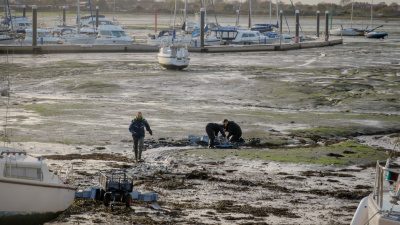
RaNtrans
The RaNTrans project has been selected as part of the European cross-border cooperation programme INTERREG V A France (Channel) / England co-financed by the European Regional Development Fund (ERDF). It will develop and test innovative, cost-effective methods to rapidly reduce the reach of algae deposition contributing to the reduction of nutrient levels.

RedPol
The RedPol project has been selected as part of the European cross-border cooperation programme INTERREG V A France (Channel) / England co-financed by the ERDF. The project focuses on the issue of endocrine disruptors.

TIGER
The TIGER project has been selected as part of the European cross-border cooperation programme INTERREG VA France (Channel) / England co-financed by the ERDF. This project will stimulate the development of tidal energy in France and the UK and accelerate its deployment in the FMA region.
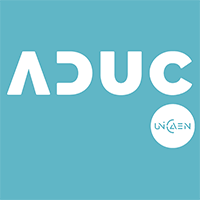
ADUC
The general objective of the ADUC project – “Alcohol and Drugs at the University of Caen Normandie” is to better understand the way students consume and to better prevent health risks, with the goal of supporting students who are struggling with their consumption.
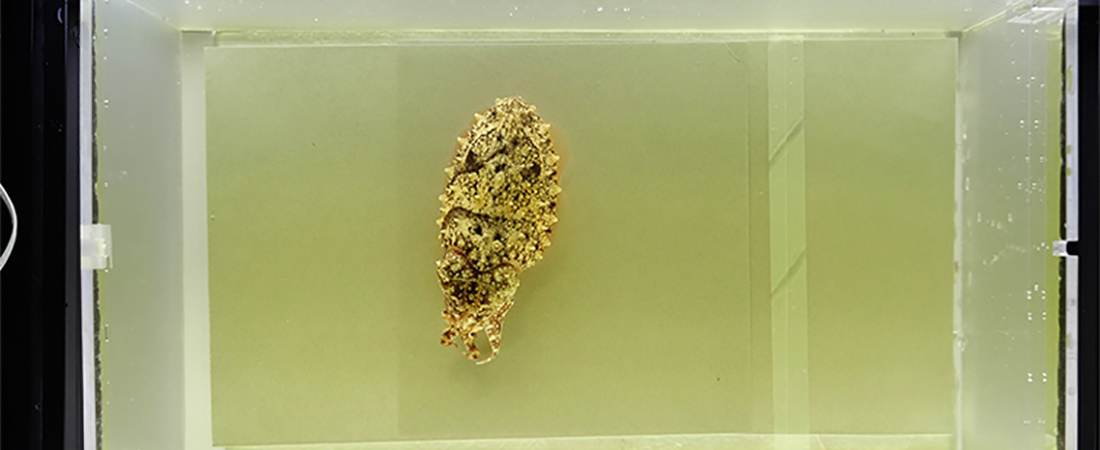
ETHICS
Emotion and decision-making in cuttlefish, Sepia · ETHiCS is a research project of the University of Caen Normandie aimed at providing new tools to estimate the level of well-being of cephalopods in captivity. It aims to provide new tools and knowledge to assess the psychological suffering (negative emotions) or well-being (positive emotions) of cuttlefish.
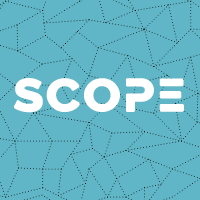
SCOPE
SCOPE is a research programme that aims to consider the cognitive and neurocognitive functioning students in order to allow the construction of academic knowledge and skills. Its aim is to prevent academic vulnerability, through the dissemination and evaluation of educational programmes co-constructed with the educational community, and to prevent cognitive development and/or learning disorders. Its implementation is based on the skills of a great number of researchers in cognitive sciences (psychology, neuroscience, educational sciences) and a research agreement signed between the University of Caen Normandie (INSPE Caen Normandie and Faculty (UFR) of psychology), the Rectorate, and the Calvados Department of Academic Services of the French Education Ministry.
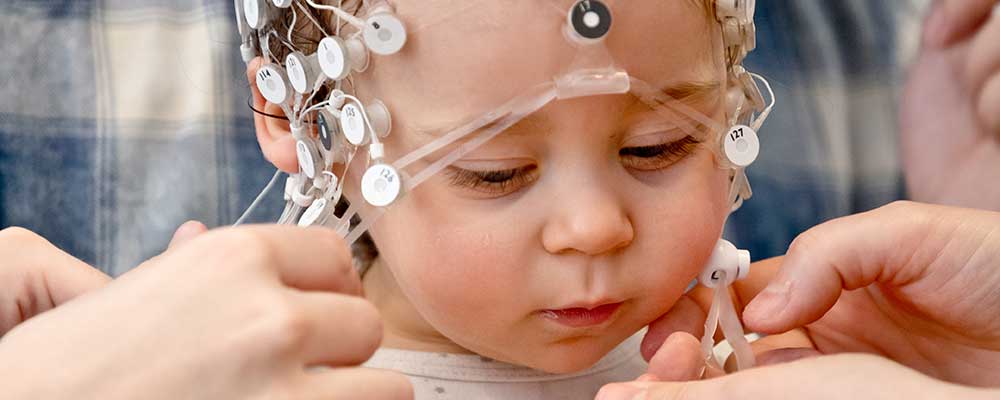
DECODE
Deduction of Behaviours and Screening DECODE is a scientific programme designed to develop research projects centred on behavioural development and screening for developmental disorders.

RICOCHET
The Multi-Hazard Assessment of Coastal Territories in the Context of Global Change · The Ricochet project focuses on the issue of managing coastal territories that are at risk of potentially concomitant dangers, both coastal (erosion and submersion) and continental (flooding by rising groundwaters, turbid floods, landslides) and are confronted with a need to prepare for the relocation of people and goods in a context of global and local environmental and societal changes.
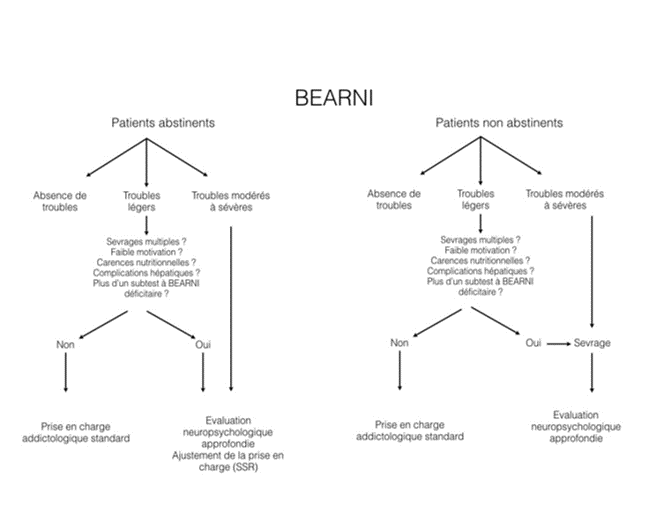
BEARNI
BEARNI, for Brief Evaluation of Alcohol-Related Neuropsychological Impairment (Ritz et al., 2015), is a clinical tool dedicated to the screening of neuropsychological disorders in patients with alcohol use disorder (© UNICAEN). The royalty-free test is intended for addiction clinicians who are not specialists in neuropsychology, in order to help them better identify patients with neuropsychological disorders.

